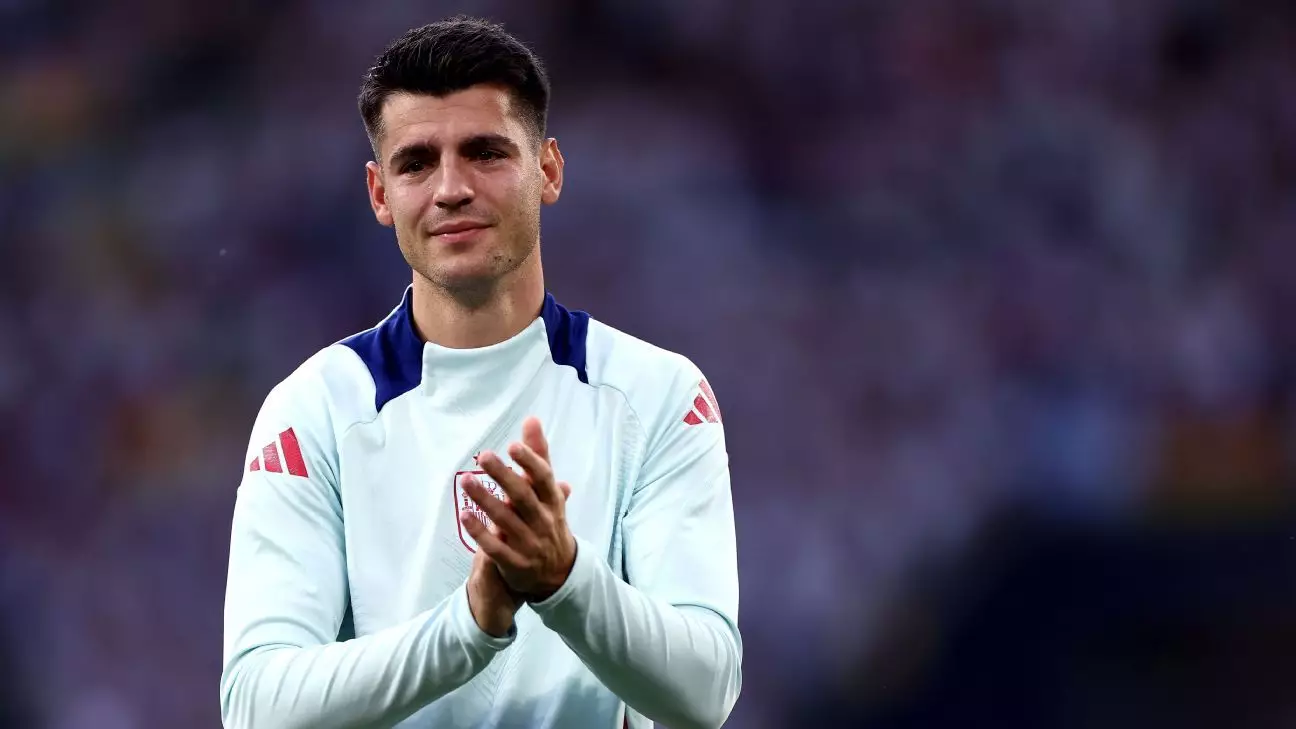Álvaro Morata, the 31-year-old forward for Spain and AC Milan, has recently opened up about his personal battles with mental health, detailing a difficult chapter that almost drove him to abandon international football. These revelations come in the wake of a triumphant summer, where he led Spain to victory in the European Championship hosted in Germany. However, it’s important to recognize that even in the zenith of sports achievement, one can wrestle with overwhelming psychological challenges.
Morata has publicly acknowledged experiencing “depression” and “panic attacks” during the period leading up to the European Championship. In an interview with COPE radio, he shared the disconcerting feeling of being almost paralyzed by his own inner turmoil. “The job you do doesn’t matter what job you do, the situation you have in life doesn’t matter,” he expressed, underscoring how mental health can overshadow career accomplishments.
Morata’s candid conversation shines light on the metaphorical weight athletes carry—not just the physical demands of performance but also emotional and psychological burdens. Criticism, especially from fans, can create a toxic environment, leading to profound self-doubt. Morata’s tumultuous relationship with supporters paints a complex picture of modern sport, where a player’s worth can sometimes be measured in public opinion rather than skill or dedication.
During his career, Morata’s performance has frequently placed him in the crosshairs of criticism. Such scrutiny can be relentless, leaving players feeling isolated. He admitted that at one point, he entertained thoughts of leaving the national team altogether, thinking, “you have to think if it’s really worth it.” This sentiment resonates deeply with many athletes who grapple with external pressures often exacerbated by social media and public scrutiny.
Morata has also spoken about how these challenges have affected his personal life and relationships, particularly with his children. He recounts feeling embarrassed to be seen with them in public, highlighting the often-unspoken toll of fame on family. When taking his kids out, he faced the stigma that comes with being a public figure whose performance has faltered. This experience emphasizes a significant issue—how athletes navigate the balance between personal life and public expectation.
The ramifications of such mental strain can ripple outwards, influencing not only the athlete’s wellbeing but also their family dynamics. Morata’s story serves as a poignant reminder that while they may reside on a pedestal, professional athletes are still human, capable of vulnerability and emotional distress.
In terms of professional development, Morata’s transition from Atlético Madrid to AC Milan signifies a new chapter. His statement reflecting on an initial desire to stay at Atlético suggests a sense of attachment and desire for stability, which can sometimes clash with the athlete’s mental health needs. “At first, I thought I’d stay at Atleti, I really wanted to,” he confessed. Yet, the mounting pressure from media interpretations of his uncertainty about his future only prompted a move that he believes will afford him more respect and support.
This transition is crucial, as Morata has now recorded two goals in five Serie A matches, indicating a resurgence in his performance on the pitch. This success has the potential to foster healing, highlighting the interconnection between mental well-being and professional performance.
Ultimately, Morata’s narrative serves as a microcosm of broader societal issues regarding mental health, particularly in high-pressure occupations. The stigma surrounding discussions of depression and anxiety must be dismantled, allowing athletes to voice their struggles without fear of judgment.
As Morata continues to compete for Spain in the Nations League while navigating his new club life, his story can inspire a shift in perspectives toward mental health. The embrace of openness in discussing these issues can promote a healthier environment for all athletes, allowing them to pursue excellence without sacrificing their mental health. In a world increasingly attuned to the importance of mental wellness, Morata’s journey reflects a significant step forward in addressing these vital topics.
